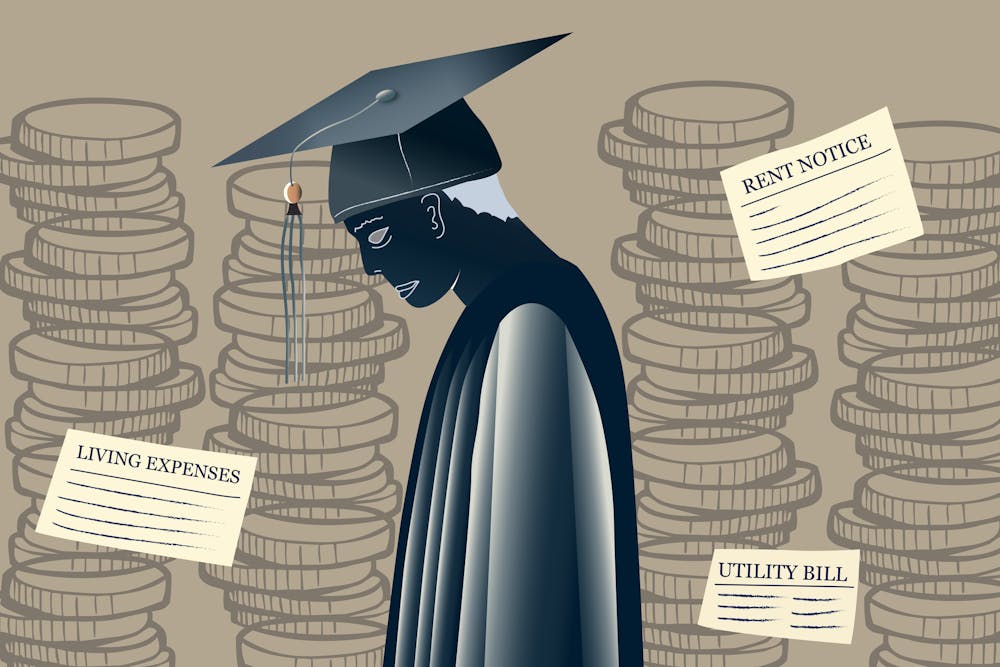On Nov. 11, The Workers Union at UNC declared graduate worker stipends to be in a state of emergency. Adjusted for local living wage, UNC-Chapel Hill ranks last out of 13 observed universities with stipends reaching only 42 percent of the basic cost of living for a single adult with no dependents. The minimum stipend is $20,600.
In comparison, the stipends for graduate workers down the road at Duke University rank third, meeting 81 percent of the local cost of living. The top four universities are all private institutions which could account for part of the wage difference, but public universities such as the University of Illinois and the University of Wisconsin still outrank Chapel Hill.
While all workers should be paid a living wage, low graduate worker wages will deter prominent students and scholars who are essential to UNC as an R1 research institution. Oct. 21-25 was University Research Week, which aimed to “highlight the importance of fundamental research as the bedrock of innovation,” according to the website. It was also used to interest undergraduate students in research and pursuing it in the future. However, any interest a student has would likely waver from the daunting prospect of surviving on less than half of a livable wage.
If the University truly valued the work of graduate students and wanted undergraduate students to get involved, it would give them a sustainable stipend. Failing to do so diminishes our institution in numerous ways, including actively disincentivizing talented faculty from flocking here.
At a large school like UNC, it is essential that professors have extra help. Some classes can be as large as seating about 400 people, making it difficult to effectively teach dense information to hundreds of students. Graduate teaching assistants are essential in helping teach material, grading papers and larger assignments, holding office hours, answering emails and more.
It is important for undergraduate students to have enthusiastic, knowledgeable mentors that can help with the learning process. Graduate students also serve as good research advisers and can take on undergraduates, introducing them to college research. Without sustainable payment for graduate students, they will not be as incentivized to attend and help students.
The impacts of such undercutting undoubtedly plague us all. Fewer graduate students will mean fewer classes at our beloved university. Fewer classes will mean more cutthroat registration sessions. Imagine a world in which it's more brutal than it already is — to grapple for lectures with stretched-thin instructors, many of whom are working one or more jobs to sustain themselves as they teach.
Furthermore, in a society and economy that already affords higher education only to those with access to substantial resources, our university's stipend practically guarantees that only a slim few will have access to the ever-inaccessible privilege of learning simply for the sake of learning.
Higher education failing to acknowledge these socioeconomic differences in its students creates an inherently non-diverse community. Diverse perspectives are integral to the development of robust research. Without differing perspectives from all financial backgrounds, these programs are bound to result in monotonous continuation of ideologies. Failure to encourage enrollment from manifold backgrounds will ultimately harm these fields without novel viewpoints. Proper funding is not only fair — it is a necessity to advancement.



